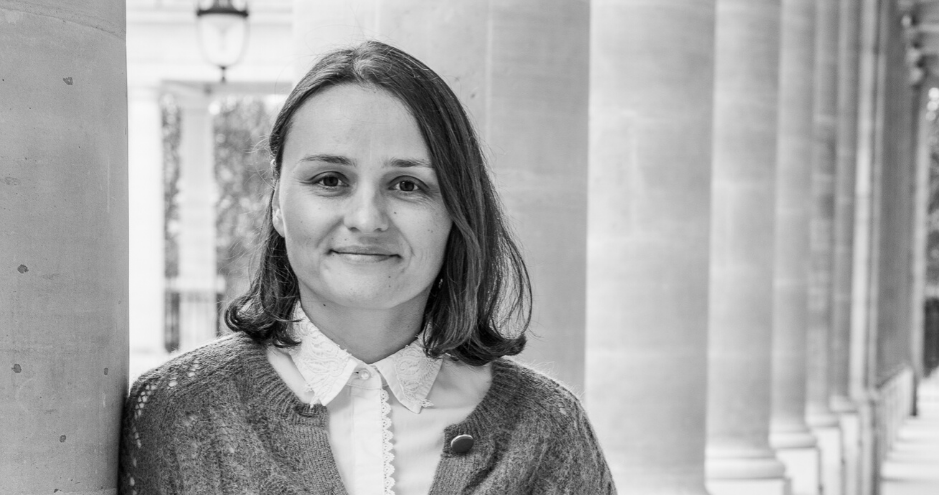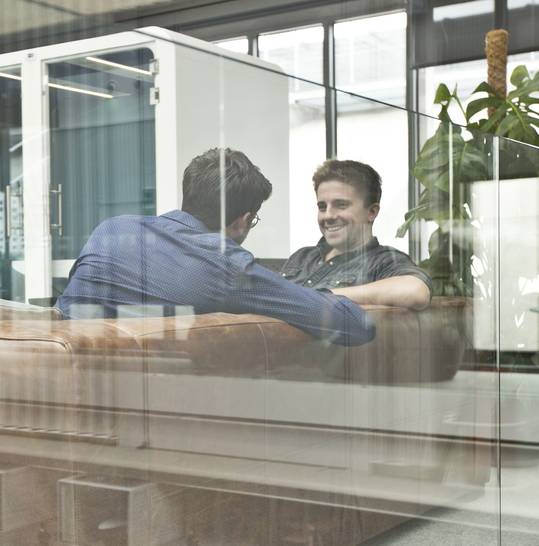[HEC Incubator] Portrait of Mentor - How Monika Esprit helps to accelerate business collaboration between startups and large groups
We are very proud of our startups, as well as our mentors and experts who accompany them!
Today we meet Monika Esprit, mentor at the HEC Incubator and specialist in the fields of digital, marketing communication and business development.

Monika, we won't introduce you here at the HEC Incubator, but tell us about your career path:
"With 16 years of corporate experience, I have mainly worked for multinational companies in France and Asia - in consulting but also for leading groups in the fragrance & beauty sector on digital, marketing & communication and business development issues. As co-founder of an investment company, I have a solid experience in the world of start-ups and investments, particularly in Asia.
I joined the HEC Incubator as an expert and for the past year I have been accompanying the incubated startups in their development by providing my expertise and network to them - with the main objective of accelerating business collaboration between startups and large groups."
- Why did you choose to take on this role?
"There is a symmetry between my different activities. They feed off each other.
Between the corporate world and the world of innovation, there are a lot of common challenges. Within the innovation ecosystem, a key concept is : "The more you give, the more you receive".
It is a virtuous circle and it is something that I want to include in my life and particularly in my professional life. By helping people and startups, I myself receive a lot. It's an exchange, a sharing and a creation of value for both of us."
- What is the advice you give most often?
"In a creative process, whatever the subject, I think it's important to learn how to build an approach and then deconstruct it.
The best way to test an approach is to work on a diametrically opposed method. The assumptions should not be symmetrical . Is this the right product? Is it the right distribution channel? Once you have found the answer to a given problem, you have to take it and then deconstruct it to see if you can also work on the opposite hypothesis. Usually it is not one or the other, but the combination of the two that will lead to the best solution.
It's a creative exercise that avoids the cognitive bias that usually pushes us towards what we are most familiar with. Of course this method must be adapted to the reality and the daily pressing needs of a startup - it is a question here of having a maximum of perspectives on a given problem, hence the importance of a team that is as diverse and as complementary as possible."
- What are the most common mistakes made?
"Today in France I find that within the founding team of start-ups there is still very little complementarity. In Asia or in the US, especially Silicon Valley, this lack of diversity is perceived as a risk because it means that we deprive ourselves from the outset of the richness of diverse perspectives.
I co-founded my investment company with three other co-founders. We are two women and two men and we all have totally different expertise.
While I am focused on digital and marketing in the luxury and beauty sectors, the other co-founders come from industrial, gaming and medical sectors.
Complementarity of professional skills is one thing, but true complementarity also encompasses career skills, personal experience, perspectives etc. We need to focus on diversity and inclusion as a whole.
"Don't launch a business on your own and don't be afraid to "dilute" your idea ( and your equity!)"
The idea is worthless without the execution - so I'm rather a fervent supporter of fair value sharing among Co-Founders. While VCs like to invest early stage in a business that is not too diluted by other investors, they also like businesses with balanced governance."
- The HEC Incubator is recognized for its tailor-made, à la carte and participative support. What does this mean for you ?
"I translate this by the "scalability" and depth of the HEC community. If we can claim to be à la carte, participative and tailor-made, it's because there are thousands of people who make up the HEC incubator's ecosystem.
“If we can claim to be à la carte, participative and tailor-made, it's because there are thousands of people who make up the HEC incubator's ecosystem.”
One of the things that really appealed to me, even though I originally wasn't part of the HEC ecosystem, is this desire to also open up to people and projects outside of their inner circle. The entry criteria are not stringent and this is a great strength."
- And in your opinion, is this sufficient in supporting the development of incubated projects?
"I would say that we can always do more and better. When I compare all this to what I have seen in Asia where the "time to market" is very important, I see two factors that make their model a step ahead:
When you are in an Asian accelerator, here are two key players: corporates and investors. In France, large groups tend not to help or support start-ups sufficiently, except when they launch their own.
Startups go through a very difficult commercialisation phase before they can gain the confidence of the large groups. In Asia, corporates are investing in solutions that are not yet perfect, with a team under construction and a product that is still at its 1.0 version. They are aware that to make this ecosystem competitive on a global scale, it is necessary to play the game and give startups a chance.
Here it is up to the startups to take all the risks, but if there are entities that have the possibility to take risks and even make mistakes, those are the larger companies.
The second key factor is the investment ecosystem. In France, we don't invest early enough in our startups.
If we want to become globally competitive, we have to work on these two factors. What we can do at our level is to instill this faster and more open culture amongst HEC corporates and investors community, and hopefully change the usual 18-month POC or the 50k MRR mentality. "
- Which startup(s) surprised you?
"I am extremely impressed and involved with the very first startup I accompanied - nr2 - founded by a Franco-English duo of Co-Founders Jordan Monnet and Maxime Parr, with impressive academic and professional backgrounds, who, after working together in China and discovering the potential and speed of the Chinese innovation revolution, created a search engine to find and contextualize these innovations and assess their global potential. nr2 was the very first French startup to win the "K-Startup Grand Challenge" in South Korea, a global start-up competition organized by the South Korean government, beating 1676 companies from 95 countries! A resolutely international startup from the very first day of its existence.
I also have a soft spot for start-ups that are not necessarily tech driven. I think we have an unbalanced bias today in favor of businesses driven by technology and the software economy.
One of the start-ups I particularly appreciate is Marie Mas. Here we have a jewellery designer who conveys her vision of the world through her maison, while at the same time ensuring the necessary business focus. The maison is already international and Marie has succeeded in record time in appealing to the US and the Middle East markets, pretty impressive !
Finally, there are "TechforGood" start-ups driven by the positive impact they can have on society. For example, My Job Glasses is an extraordinary project. The execution of their idea is a real success and here we have a real example of breaking down silos. My Job Glasses, makes it possible to create connections that would probably never have been made otherwise!"
- Are you involved in other incubators or do you provide other types of support?
"I am still very active with French Founders, a technology driven business club that I had the chance to develop across South East Asia markets. I have been involved in helping them develop in several countries in Southeast Asia. I am also part of a community of Business Angels founded by another HEC incubator expert who regularly invites start-ups from the incubator or elsewhere to come and pitch for funding.
Finally, I have an excellent relationship with BPI France, which offers impressive support programs, particularly at the regional level, allowing the scouting and funding of high potential startups (and future unicorns?) all over France."
The final word? "Give to Receive!"

